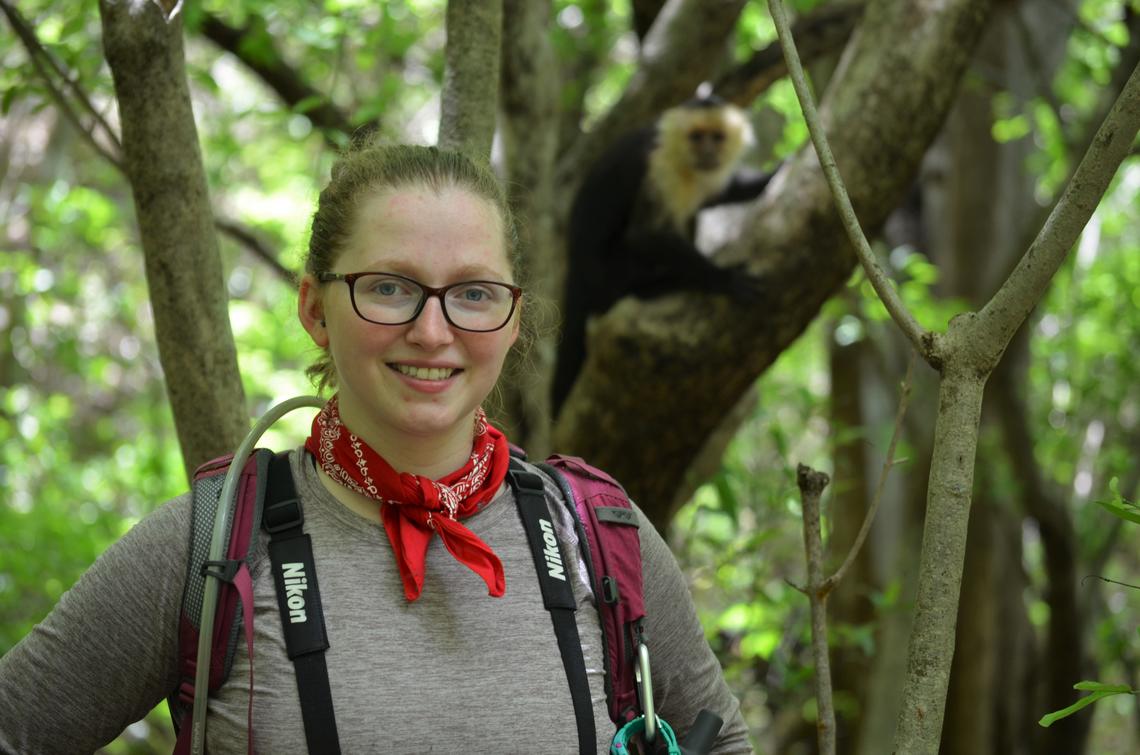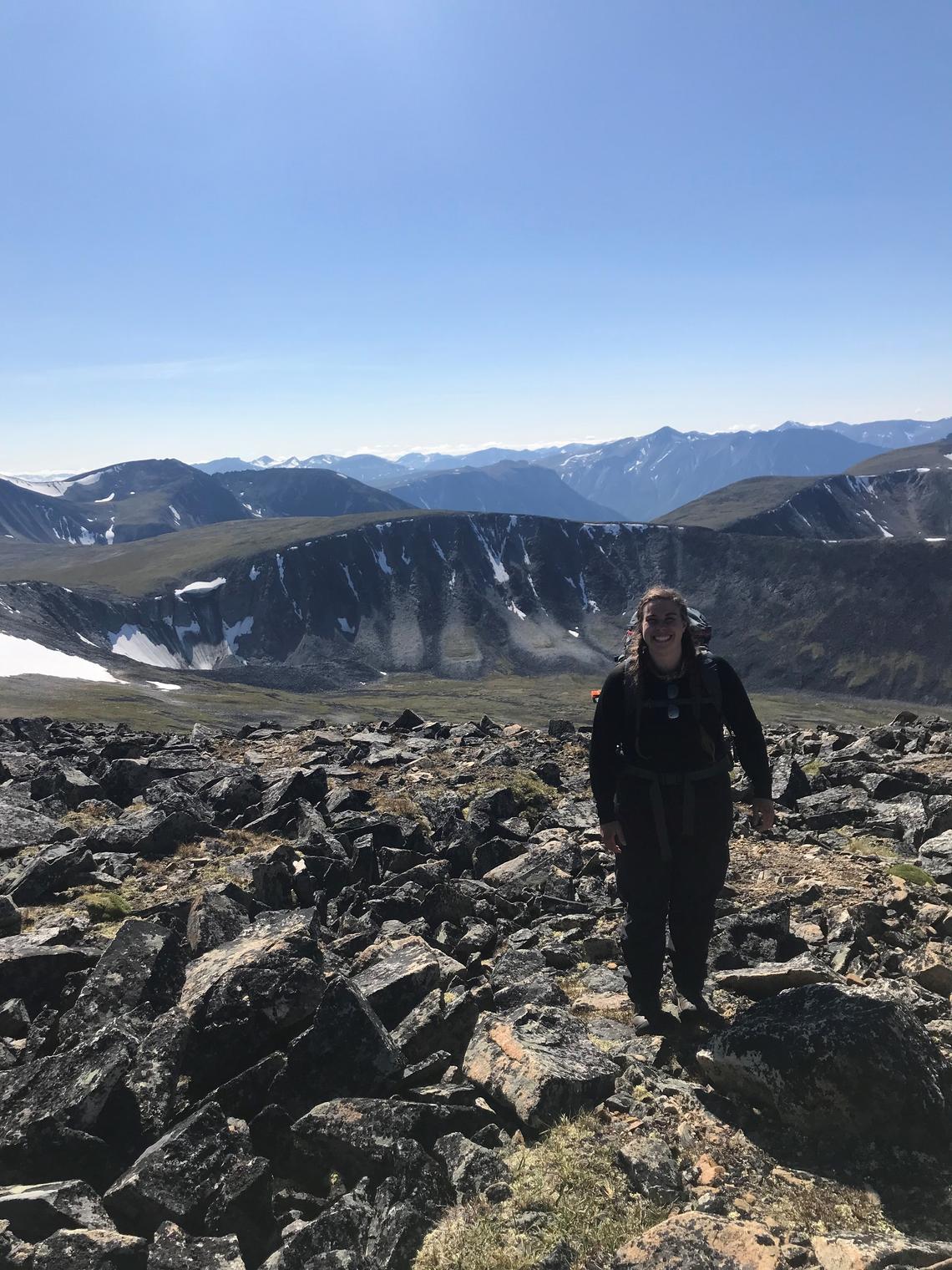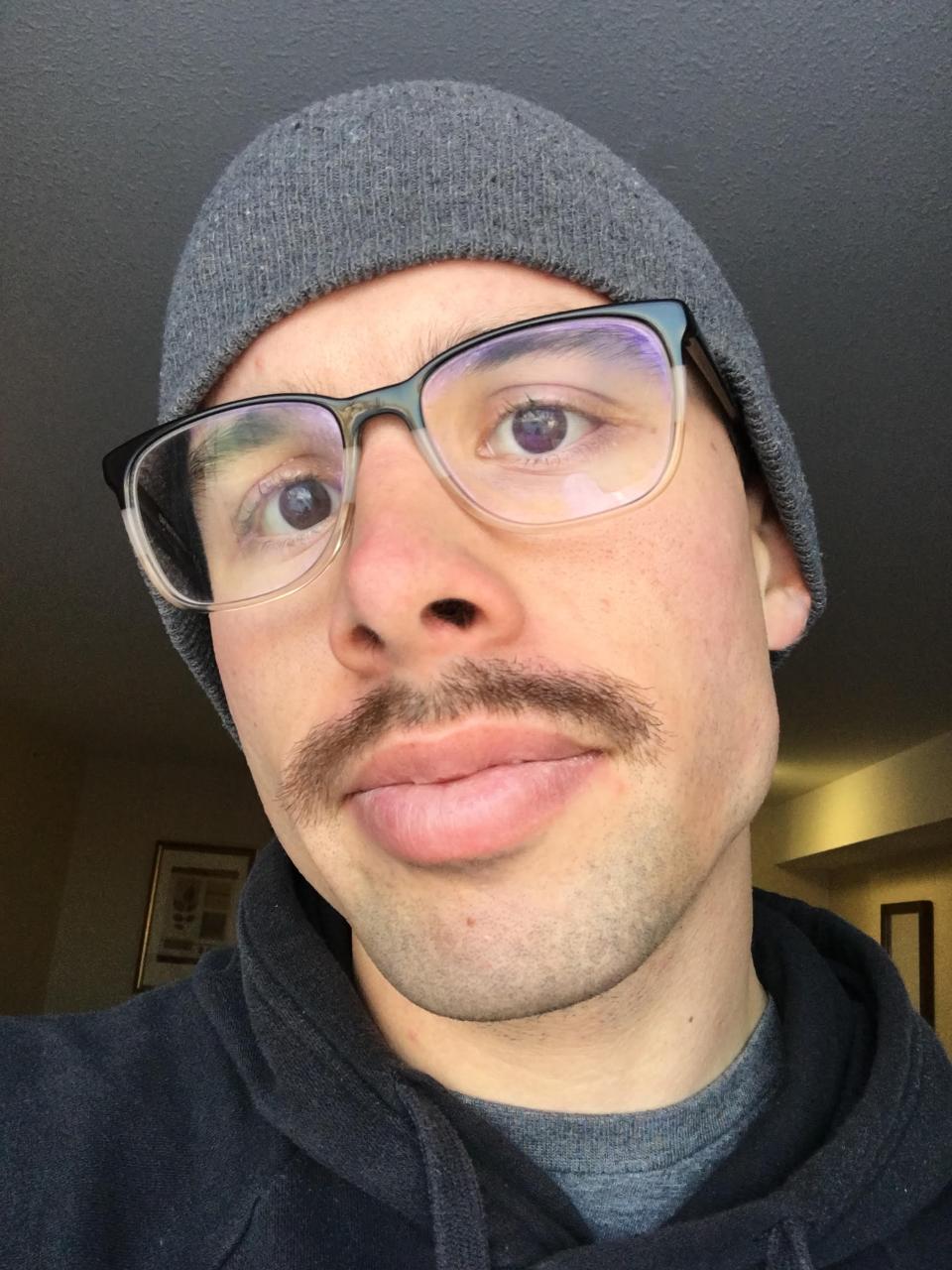Dec. 6, 2021
Q&A with grad students on fieldwork during COVID-19
The COVID-19 pandemic cut short, postponed, and cancelled people's plans and activities worldwide. COVID-19 was also a disruptive force to academia in many ways. In-person instruction, research, and training were limited, creating new challenges and stressors for researchers.
Critically, almost all study areas within anthropology requiring fieldwork were impacted by the pandemic. Gathering restrictions, travel advisories, and the obvious risk of illness influenced whether field research would be heavily modified or cancelled for the season.
For anthropology grad students, changes to research plans meant altering a major part of their degree. Fieldwork is often a required component of anthropology programs, and COVID-19 restrictions delayed progress or changed research topics completely.
But fieldwork is more than data collection. Students have the chance to meet new people, travel, and often literally get their hands dirty with the work. Some say that the whole reason they chose a graduate degree in anthropology was the opportunity for fieldwork. It is a major identifying factor for people within the discipline and a unifying element for the wide-ranging subdisciplines (archaeology, biological anthropology, social and cultural anthropology, and linguistic anthropology).
Besides the heavy reality of delaying graduation or missing out on networking opportunities, there are new ethical considerations to travelling. Many anthropologists conduct their research in remote areas in and around communities that might be more at risk of severe outcomes from viruses like COVID-19. Researchers and graduate students need to evaluate factors such as the rate of infections and vaccinations in their research areas, the availability of public health infrastructure, and the nature of their interactions with the communities. Teams must make decisions based on a public health perspective to keep both themselves and local community members safe.
How did graduate students in the Department of Anthropology and Archaeology at the University of Calgary conduct their necessary fieldwork during COVID-19?
I talked to three grad students in the department to find out how they managed to gather data essential to completing their degrees and learn about the challenges they faced along the way.

Photo courtesy of Allegra DePasquale
Doctoral student Allegra DePasquale spent the field season in Costa Rica doing primatological research. From April to June 2021, DePasquale worked on two projects during her COVID-19 field season. She measured wind speeds at different parts of the tree canopy to understand how primates' sensory signals travel in these various locations. DePasquale also monitored fruit-eating animals using camera traps and song meters to see who utilizes the fruit trees and compare that information to her observations. A major difference of DePasquale’s COVID-19 experience was navigating the ethics of travelling for research and missing the key social aspects of the job.
Avrille Aiello: How long has it been since you were last able to go to the field? Did you have to skip a season in 2020?
Allegra DePasquale: I was very fortunate because I finished my master's season in December 2019. When the pandemic hit, I was in a state where I was writing up and doing analysis. I was really fortunate that I didn't miss any field seasons.
AA: Were there any travel barriers back in April that you had to navigate to get down to Costa Rica?
AD: This is partially on me; I didn't realize that there were entry requirements. Usually, when you go to Costa Rica, you enter the country with no problem. But with Covid, they have this whole form that you need to fill out and prove that you have travel insurance that covers Covid expenses. I didn't realize that.
Once you get to the site, you have to quarantine. You isolate, wear masks, and you can't go out with the monkeys during your quarantine period. It was really different from my first field experience in Santa Rosa in 2019.
AA: Were all these new protocols the major difference between this and previous years?
AD: Yeah, and just the fact that when I went down no one was hanging out. When I went down in 2019, I met so many people and did all these things that really enriched my experience there. But coming back, we couldn't do all the usual social activities.
We also now wear masks with the monkeys. Research from our group shows that primates are as susceptible as we are to getting Covid.
AA: What ethical considerations did you make when planning to travel to remote communities and working with primates during a pandemic?
AD: There were a ton of conversations going into that field season. I only went down there because I was in the States at the time, and I was able to get vaccinated earlier than I would have in Canada. Safety and the ethics of it were our number one concern. We had put in place a very detailed and rigorous protocol for that reason. It's obviously not just this super precious population of primates; it's also the local collaborators that we work with. It was a decision that we didn't make lightly.

Photo courtesy of Kelsey Pennanen
The summer of 2021 was archaeology PhD student Kelsey Pennanen's second time in the field since the start of the pandemic. Pennanen has been using drone technology to capture and recreate mountainous hunting landscapes of the Yukon in 3D. The 3D models that Pennanen is creating are so detailed that they show how people moved rocks around the landscape to suit the needs of the hunting strategy. In addition, she can connect her data to oral histories told to her by local Indigenous elders. Like DePasquale, Pennanen also faced ethical considerations of visiting remote communities for studying amid restrictions.
Avrille Aiello: Were you able to conduct your fieldwork at your usual time throughout the pandemic?
Kelsey Pennanen: Last summer, I would have gone for longer, but everything was delayed. This summer, I was able to go for the entire field season. The pandemic cancelled other fieldwork projects that I would normally participate in, so I had more time to spend on this project.
AA: What kinds of considerations did you have to make when planning fieldwork during a pandemic?
KP: Of course, when travelling to remote communities your main concern is that if you get sick, you might be contributing to pressures on what may be already limited healthcare resources. After lots of discussions with my collaborators in the territory, we determined that the fieldwork could be safely completed with minimal risk if we closely followed all protocols.
Since the beginning of the pandemic the Yukon territory has taken travel restrictions and isolation requirements very seriously, and no major outbreaks had occurred before the start of fieldwork, and the healthcare system was not overwhelmed. After the success of the 2020 field season, we went forth with following the same protocol for the 2021 field season. Unfortunately, an outbreak did occur in the Territory while I was in isolation, but it was already too late for me to leave to drive out of the outbreak area, so I just had to wait it out.
AA: As an early career researcher, did you feel like there was pressure to go out and gather your data?
KP: I would say my supervisor probably discouraged it more than anything. He told me, "It’s okay, you can go up next summer.” But it was also my funding. If I didn’t spend that money, it would be gone. So, it was more a matter of this is funded, this is guaranteed; future funding is not guaranteed.

Photo courtesy of Simon Koots
Simon Koots is an anthropology master's student studying how Alberta farmers perceive climate change. To do this, Koots conducted interviews with farmers to have broad discussions about farming and climate change, listening to their perspectives on these topics. After months of postponing interviews, Alberta was entering its second wave, forcing Koots to change his method of collecting data. He needed to go virtual and talk to farmers on Zoom.
Avrille Aiello: Is data collection different during a pandemic than it would be under normal conditions?
Simon Koots: I think slightly. I did get a chance in the middle of this summer to go to a farm. It was different – It was a lot easier to talk to people in person than on Zoom. The benefit of being in-person is the option to talk to other people on the farm.
AA: Do you feel that COVID-19 restrictions impacted the quality or content of your results?
SK: Partially the quality. With participant observation, one of my goals is to hear what they have to say and then go see if there is any contrast. I wasn't able to do that with my research. I talked to 16 farmers, and there was only one farm I went to, so to compare the two is very difficult. The overall quality was probably lower because of Covid because there are fewer options for approaching the data collection.
AA: Do you think technologies like Zoom will be a permanent tool in a researcher's tool kit?
SK: 100 per cent. For example, my project was based in Alberta, but other projects in the department are not. With something like Zoom, I was able to find and talk to participants. With technology, you can design a project to get your participants purely off things like Facebook groups. You can do all your interviews over Zoom, and you don't need to be in the same city as they are.
Anthropologists have adapted to the new world of research. However, changes to the research process will not end as the years and the pandemic go on. Even as COVID-19 becomes a thing of the past, the ethical and logistical issues that it uncovered remain. How will anthropology decide to approach research in and around populations vulnerable to severe health outcomes of COVID-19 and future viruses? Anthropology faces a future in which subsequent pandemics and untold climate change-related natural disasters will affect graduate students and research for years to come.
*These interviews have been edited and condensed.
